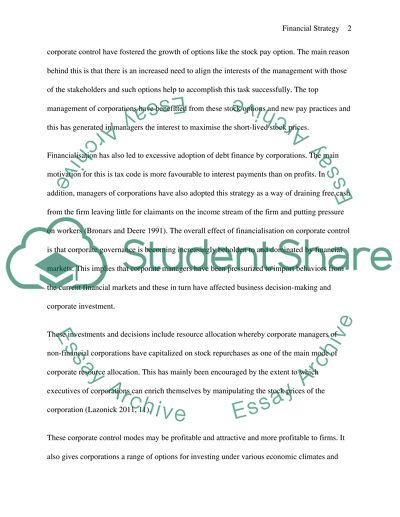Cite this document
(“Financial Strategy Essay Example | Topics and Well Written Essays - 1000 words”, n.d.)
Retrieved from https://studentshare.org/finance-accounting/1445819-financial-strategy-briefly-discuss-how-has-the
Retrieved from https://studentshare.org/finance-accounting/1445819-financial-strategy-briefly-discuss-how-has-the
(Financial Strategy Essay Example | Topics and Well Written Essays - 1000 Words)
https://studentshare.org/finance-accounting/1445819-financial-strategy-briefly-discuss-how-has-the.
https://studentshare.org/finance-accounting/1445819-financial-strategy-briefly-discuss-how-has-the.
“Financial Strategy Essay Example | Topics and Well Written Essays - 1000 Words”, n.d. https://studentshare.org/finance-accounting/1445819-financial-strategy-briefly-discuss-how-has-the.


